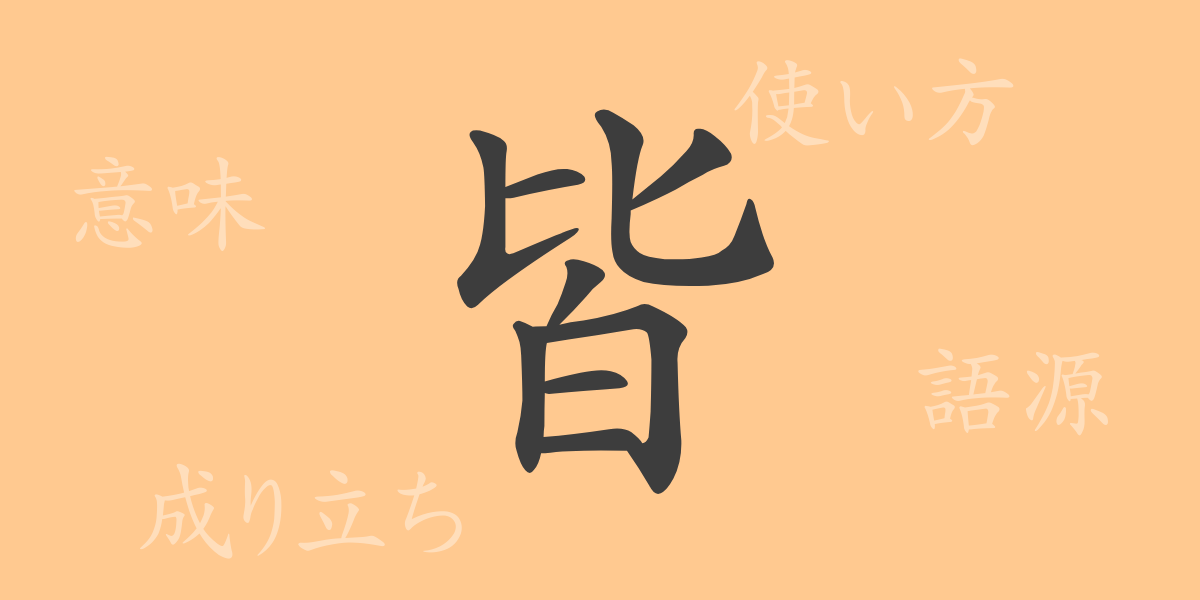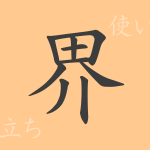The beauty of the Japanese language is also embodied in its characters. In this article, we will focus on one of Japan’s commonly used Kanji, “皆” (Mina), and delve into its profound world. “皆” (Mina), which is frequently used in everyday conversation, literature, and business settings, carries meanings beyond just being a character. We will uncover the full picture of “皆” (Mina), from its etymology to its meaning, usage, and even phrases and idioms that include it.
Origins of 皆 (Mina)
The character “皆” (Mina) originates from ancient China. It evolved from the character for “white,” which is “白” (Haku), and is composed of “白” (Haku) at the top and “比” (Hi), representing people, at the bottom. Originally, it was an ideogram used to depict a gathering of people, illustrating everyone being together. Over time, it has come to be widely used with the meaning of “everyone” or “everything.”
Meaning and Usage of 皆 (Mina)
“皆” (Mina) means “all people” or “all things” and is used as a comprehensive expression. For example, the sentence “皆で協力しよう” (Mina-de-kyouryoku-siyou) translates to “Let’s cooperate with everyone.” It is also commonly used in phrases like “The project was successful thanks to everyone’s efforts.” Additionally, it can be used to emphasize the absence of something, as in “皆無” (Kaimu), meaning “none at all.”
How to Read 皆 (Mina), Stroke Count, and Radical
While “皆” (Mina) is one of the more familiar Kanji in Japanese, let’s take a closer look at its formation and characteristics.
- Reading: The on’yomi (Chinese reading) is “かい” (Kai), and the kun’yomi (Japanese reading) is “Mina”.
- Stroke Count: “皆” (Mina) has a total of 9 strokes.
- Radical: The radical is “白” (Haku), also known as “はくへん” (Hakohen).
Phrases, Idioms, and Proverbs Using 皆 (Mina) and Their Meanings
There are many phrases, idioms, and proverbs that include “皆” (Mina), each showcasing the rich expressive power of the Japanese language. Here are a few examples:
- 皆目見当がつかない (Kaimokukentou-gatikanai) – To have absolutely no idea, to be completely clueless.
- 皆無 (Kaimu) – Nonexistent, nothing at all.
- 皆勤 (Kaikin) – Perfect attendance, without any absences.
- 皆既日食 (Kaikinissyoku) – A total solar eclipse, where the sun is completely obscured by the moon.
- 皆様 (Minasama) – A polite term for many people, the general public.
Conclusion on 皆 (Mina)
The Kanji “皆” (Mina), with its simple form, encompasses a wealth of meanings. It plays a significant role in Japanese culture and language and is deeply rooted in our daily lives. Through this article, we hope you have felt the history and culture behind the character “皆” (Mina) and have gained a deeper appreciation for the complexities of the Japanese language.

























